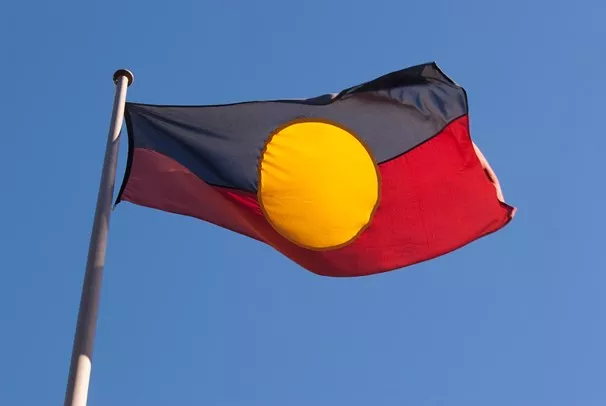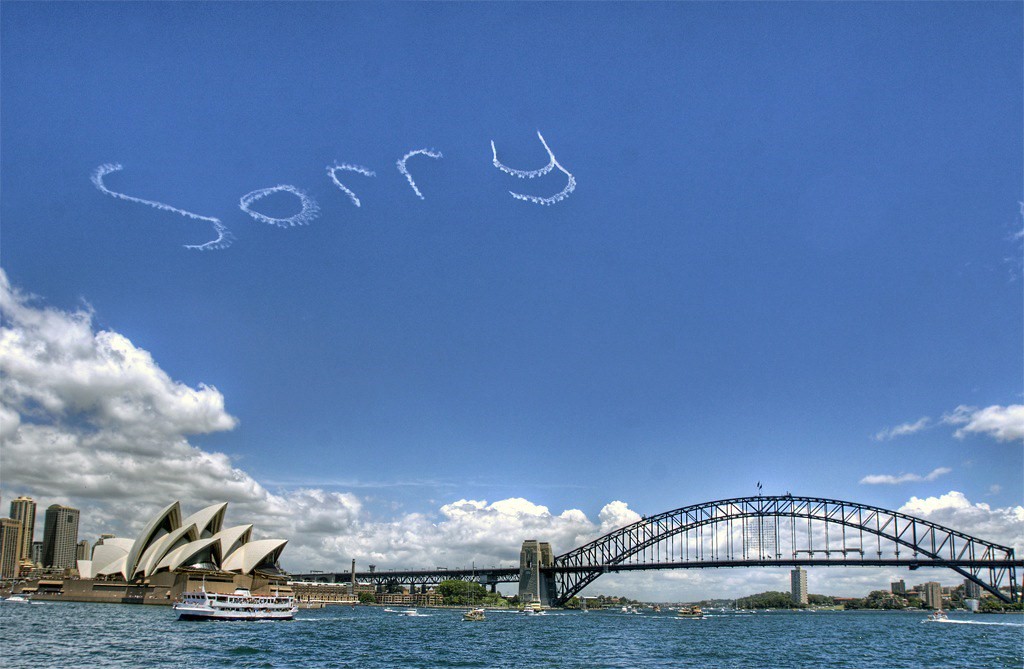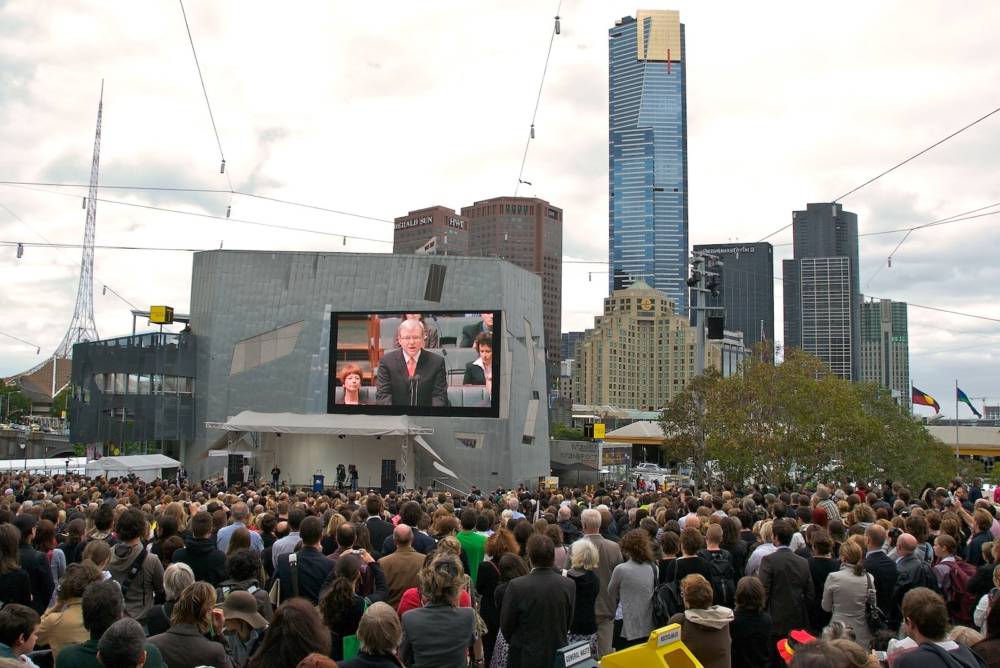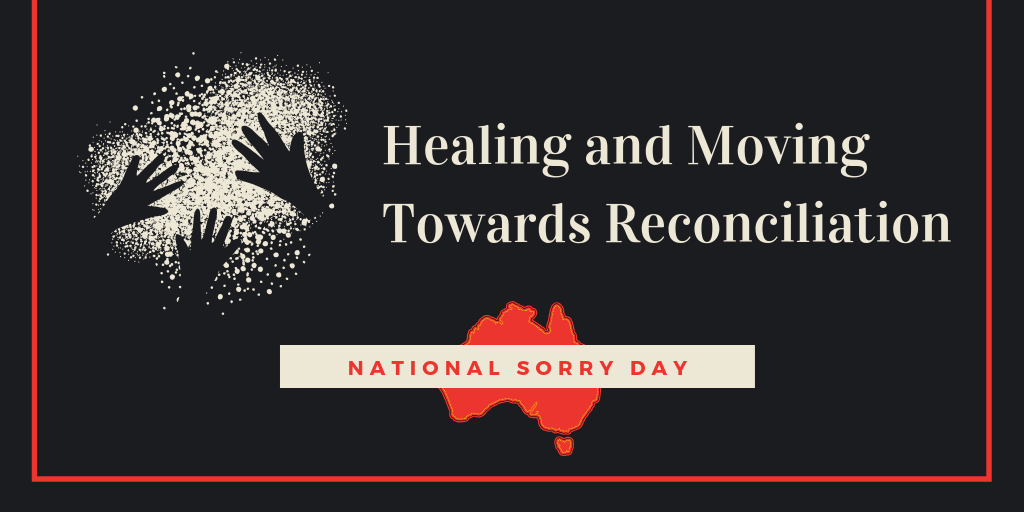National Sorry Day is an Australia-wide observance held on the 26th of May each year. The purpose of this day is to give indigenous and non-indigenous Australians the chance to come together to recognise and work towards healing for the Stolen Generations (Hempstall 2019).
Understanding the Past
Australia has a bloody and unjust past when it comes to the treatment of indigenous people. It is important to understand this past and the policies that allowed certain treatment and behaviour to be carried out so that, as a Nation, we can begin a healing path towards reconciliation.
 The systematic removal of indigenous children from their families and homelands occurred from the mid-1800s to the 1970s (Aboriginal Incursions 2019). This occurred Nation-wide and under various pieces of state and Commonwealth legislation. Many of these children were placed into institutional care or with non-indigenous foster families (Aboriginal Incursions 2019). The generations of children removed under these policies became known as the ‘Stolen Generations’ (Reconciliation Australia 2019).
The systematic removal of indigenous children from their families and homelands occurred from the mid-1800s to the 1970s (Aboriginal Incursions 2019). This occurred Nation-wide and under various pieces of state and Commonwealth legislation. Many of these children were placed into institutional care or with non-indigenous foster families (Aboriginal Incursions 2019). The generations of children removed under these policies became known as the ‘Stolen Generations’ (Reconciliation Australia 2019).
Bringing Them Home Report
In 1995 a National Inquiry into the separation and forced removal of indigenous and Torres Strait Islander children took place and was conducted by the Human Rights and Equal Opportunity Commission (HREOC) (HREOC 1995). In 1997 the ‘Bringing Them Home Report’ was tabled in parliament. This report concluded that the removal of children under these policies breached fundamental human rights (Pearson 2019). The Report handed down 54 recommendations (Pearson 2019). One of these recommendations was to recognise and remember the past and the stolen generations, hence the first National Sorry Day was held on May 26th 1998, exactly one year after the release of the Bringing Them Home Report (Hempstall 2019).
Unfortunately, many of the other recommendations from this report are yet to be implemented by governments (Pearson 2019).
Formal Apology
 One of the formal recommendations from the Bringing Them Home Report was for the government to make a formal apology to stolen generations of Aboriginal and Torres Strait Islander people (HREOC 1995). It was not until the 13th of February 2008 when Prime Minister Kevin Rudd issued a full apology in a speech known as the ‘Sorry Speech’ (Pearson 2019).
One of the formal recommendations from the Bringing Them Home Report was for the government to make a formal apology to stolen generations of Aboriginal and Torres Strait Islander people (HREOC 1995). It was not until the 13th of February 2008 when Prime Minister Kevin Rudd issued a full apology in a speech known as the ‘Sorry Speech’ (Pearson 2019).
“We apologise for the laws and policies of successive Parliaments and governments that have inflicted profound grief, suffering and loss on these our fellow Australians…For the pain, suffering and hurt of these Stolen Generations, their descendants and for their families left behind, we say sorry.”
Prime Minister Kevin Rudd, 13 February 2008

People in Melbourne gathering to hear Kevin Rudd ‘Sorry Speech’
National Sorry Day
Saying sorry is an important part of healing. For ‘white Australia’ it can be easy to forget or ignore the past but the effects of the Stolen Generations live on today, and the suffering and trauma to indigenous people cannot be underestimated (Hempstall 2019). National Sorry Day is here to remind us all of the past and the importance of understanding and saying sorry so that we can move forward towards reconciliation.
Download PDF: ISPL Insight – Healing and Moving Towards Reconciliation
References
Aboriginal Incursions. 2019. What is National Sorry Day About? Accessed May 23, 2019. https://aboriginalincursions.com.au/special-aboriginal-ceremonial-events/national-sorry-day.
Hempstall, Hannah. 2019. Who. Accessed May 23, 2019. https://www.who.com.au/national-sorry-day-why-is-sorry-day-important.
HREOC. 1995. Bringing them home. Report of the National Inquiry into the Separation of Aboriginal and Torres Strait Islander Children from Their Families. Canberra, ACT: Commonwealth of Australia.
Pearson, Luke. 2019. SBS. 10 Things you should know about the National Apology. February 13. Accessed May 23, 2019. https://www.sbs.com.au/nitv/article/2017/02/13/10-things-you-should-know-about-national-apology.
Reconciliation Australia. 2019. Sorry Day and Stolen Generations. May 5. Accessed May 23, 2019. https://www.reconciliation.org.au/wp-content/uploads/2017/11/150520-Sorry-Day.pdf.


